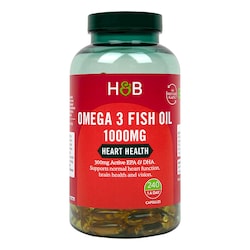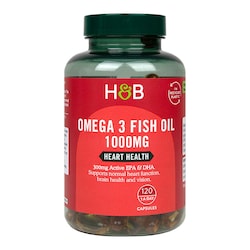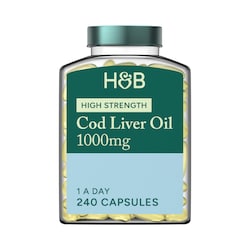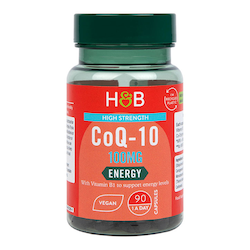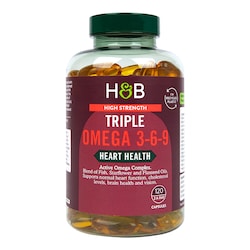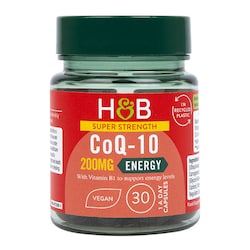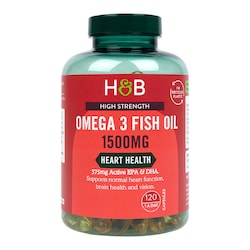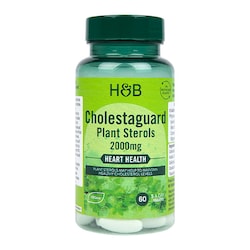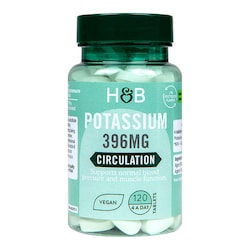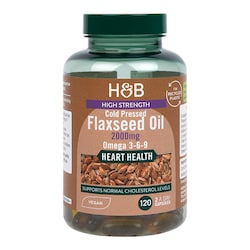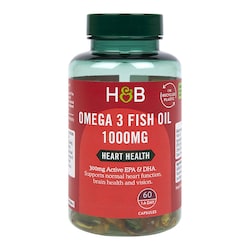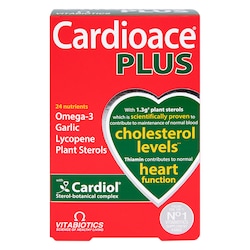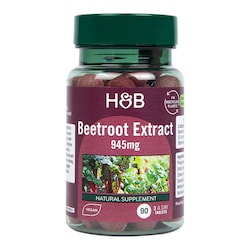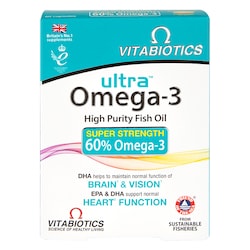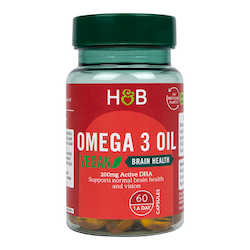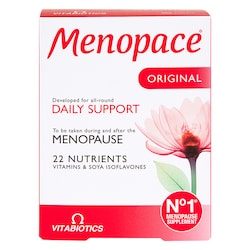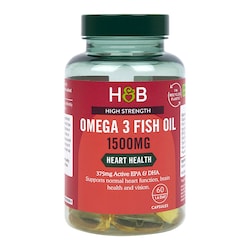15% off £30 OR 20% off £40
11 top benefits of grapefruit and how to enjoy it

Is grapefruit good for you?
Yes! Grapefruit is a tasty, tropical treat that’s renowned for its sweet yet tangy taste.
This citrus fruit is packed full of vitamins, minerals, antioxidants and fibre, making it one of the healthiest fruits you can enjoy.
There are lots of science-backed benefits of eating grapefruit, including weight loss, heart health and nourishing your body with essential nutrients. You can also enjoy some additional benefits by using it in skincare and aromatherapy.
We’ve found 11 of the best grapefruit benefits out there, but before we get into that, here’s some more info about this tasty treat.
Are there different types of grapefruit?
There are five of the most common types of grapefruit you may come across:
-
White grapefruit
If you love the tang of a grapefruit rather than the sweetness, then white grapefruit could be for you. Outside it has a creamy yellow skin and inside you will find a vibrant citrus aroma and a more sour than sweet taste.
-
Pink grapefruit
The favourite – a hybrid of white and red grapefruit, pink grapefruit is the most palatable of all grapefruit varieties, with a deliciously mid tangy sweetness. It’s great for juicing.
-
Red grapefruit
Like it sweet? The redder the grapefruit flesh, the sweeter the favour and the higher concentration of antioxidant lycopene (one of the best benefits of red grapefruit). However, this fruit is the least complex in taste and still quite better.
-
Pomelo grapefruit
Grapefruits are said to be hybrids of oranges and pomelos, and the combination is best seen in this variety. They are large, yellow or lime green in colour, with a mellow flesh and a thick, bitter pitch that is super easy to peel. Use their sturdy sections in salads.
-
Oro Blanco
One of the lesser known grapefruit varieties is called Oro Blanco – meaning white gold. This type of grapefruit has super sweet flesh with hardly any bitterness, protected by a thick green / lemon yellow skin.
Summary
There are 5 main types of grapefruit, each with different coloured skins and tastes:
- White grapefruit
- Pink grapefruit
- Red grapefruit
- Pomelo grapefruit
- Oro Blanco grapefruit
What are the top 11 health benefits of grapefruit?
The health benefits of grapefruit may surprise you. This tart-but-sweet savoury treat is full of nutrients that can help our bodies on the inside and out.
Here are the top 11 benefits of grapefruit backed up by science:
What are the benefits of eating grapefruit?
Let’s start with the way most people enjoy grapefruit – by eating it of course!
1. Grapefruits are full of essential nutrients
Although it is enjoyed by many simply for its taste, there are an impressive amount of nutrients packed into every grapefruit.
A single serving of half a fresh grapefruit or 150ml is enough to get your fix.
Here are the nutrients you will absorb from 1/2 fruit serving (123g):1
| Amount | %DV* | |
|---|---|---|
| Energy | 52kcal | 3% |
| Carbs | 13.1g | 4% |
| of which sugars | 8.5g | |
| Fibre | 2g | 8% |
| Fat | 0.2g | 0% |
| of which saturates | 0g | |
| Protein | 1g | 2% |
It also contains lots of vitamins and minerals, including:2
| Amount | %DV* | |
|---|---|---|
| Vitamin A | 1415IU | 28% |
| Vitamin C | 38.4mg | 64% |
| Thiamin | 0.1mg | 4% |
| Vitamin B6 | 0.1mg | 3% |
| Folate | 16mcg | 4% |
| Magnesium | 11.1mg | 3% |
| Calcium | 27.1mg | 3% |
| Potassium | 166mg | 5% |
Summary
As you can see, grapefruits are:
-
Very low in calories
-
Contain moderate levels of sugar
-
High in fibre
-
Plenty of important micronutrients, with the most abundant grapefruit vitamins being C and A
2. Grapefruits may support a healthy immune system
Grapefruit vitamin C levels provide you with 64% of your daily recommendation per half of the fruit. And you know what vitamin C is good for? Supporting your immune system!
Vitamin C, aka ascorbic acid, is an essential vitamin that’s needed to support immune function in humans, especially during and after high-intensity exercise.3
Grapefruit also contains vitamin A, which has also been shown to support the immune system.4
Summary
-
Grapefruit is full of vitamin C, which can support the immune system
-
It contains vitamin A, which also supports immune function
3. Grapefruits may support heart health
Cholesterol and high blood pressure are the two major risk factors for heart disease, and grapefruit is believed to help tackle them.
The main reasons grapefruit is believed to be good for heart health are:
-
Potassium content: half a grapefruit contains about 5% of your daily potassium needs, an essential mineral essential for heart health. High-quality evidence shows that increased potassium intake helps maintain normal blood pressure levels.5
-
Fibre content: like most fruits, grapefruit is rich in dietary fibre, which is key for reducing cholesterol.6
One study on grapefruit and blood pressure found that participants who ate grapefruit every day for 6 weeks experienced better cholesterol and LDL (bad) cholesterol levels.7
Summary
-
Grapefruit has been seen to help maintain normal cholesterol and blood pressure levels
-
This is likely due to its potassium and fibre content
4. Grapefruits could help control your appetite
Each half a grapefruit contains 8% of your daily fibre needs, which may not seem like a lot, but is a great contribution to your daily fibre.
A high-fibre diet has been shown to help people feel fuller and more satisfied for longer.8 This is because dietary fibre increases digestion time by slowing the rate at which your stomach empties.9
If you feel fuller and less hungry than usual, you may be less likely to eat as many calories.10
Summary
-
Grapefruits contain dietary fibre that may help you feel more satisfied for longer
-
Eating fibre-rich grapefruit could help control your appetite by causing you to feel full
5. Grapefruit weight loss support
How is grapefruit good for weight loss?
Whether you simply enjoy half a grapefruit with your breakfast, as a snack or go for The Grapefruit Diet Plan, grapefruit has lots of ways it can help you lose weight.
First of all, grapefruit is one of the lowest calorie fruits (52kcal a serving) and the sugar in grapefruit is minimal, so if you replace your usually sugary snacks with a grapefruit you can still get your sweet fix with a lot.
What grapefruit ‘lacks’ in calories, it makes up for in water. Its high-water content can definitely contribute to your daily water intake and help keep you hydrated, which is something else integral for weight loss.11
One we have already mentioned is grapefruit’s fibre content, which is linked to longer feelings of fullness, which may help you lose weight.12
There are several studies that show grapefruit as an effective weight loss aid including:
-
A study on the grapefruit intake of obese subjects found that those who ate half a grapefruit before their normal meals lost more than 2.5lbs on average over 12 weeks than those who did not13
-
Another study found that participants waist sizes decreased when they ate grapefruit with their meals14
Like any food, grapefruit cannot be held full responsible or even mostly responsible for your weight loss, but it has been seen to help for several reasons.
Summary
-
Grapefruit is good for weight loss for a variety of reasons, including its fibre content, water content and low-calorie count
6. Grapefruits could help you maintain healthy blood sugar levels
Enjoying some grapefruit could help your body maintain normal blood sugar levels.
Insulin resistance can cause blood sugar levels to rocket, as insulin is needed to take glucose (sugar) out of the blood and into other cells so they can use it as fuel.
Grapefruit and other fruits have been seen to help control insulin levels and maintain better blood sugar control.15
Summary
- Grapefruits and other fruits have been found to help maintain healthy blood sugar levels
7. Grapefruits are very hydrating
Grapefruits are loved for their sheer juiciness, and where does that juiciness come from? Their high-water content of course.
A single serving of peeled grapefruit (half a fruit) contains about 108ml of water.16 While plain old regular water should be your main hydration source, water-rich foods can also help keep you topped up.
Summary
- Half a grapefruit contains approx. 108ml of water
- It can help you stay hydrated
8. Grapefruits are full of antioxidants
We’ve already raved about grapefruit’s vitamin C content and how it can help support your immune system, but did you also know vitamin C is an antioxidant?
Antioxidants protect the cells in your body from oxidative damage caused by free radicals.
Vitamin C, along with beta carotene, lycopene and flavanones make grapefruit a very potent antioxidant, as well as beneficial in other ways:
- Flavones as well as being antioxidants, have also been linked to reduced normal blood pressure and cholesterol levels17
- Beta-carotene is thought to help reduce the risk of heart disease and some degeneration in eye health18
Summary
- Grapefruit are rich in various antioxidants
- Antioxidants can help combat oxidative damage in the body
9. Grapefruit extract can support skin health
Not only does this tangy treat do wonders for the inside of your body, it can help look after the outside too.
Grapefruit benefits for skin include:
- Helps to exfoliate skin: grapefruit contains various acids – tartaric and citric being some – that can help to break down dead skin cells and exfoliate them away.19
- Packed with vitamin C: vitamin C is great for your skin as well as your immune system. It can help brighten and hydrate the skin, as well as support your skin’s collagen production. Collagen is a protein that helps to keep your skin looking elastic, plump and youthful.20
- Rich in antioxidants: the use of antioxidants in skincare can help to prevent oxidative damage to cells, protect it from pollution and UV damage and also help it repair and renew.21
If you want to give it a try, look for grapefruit seed extract in your skincare products.
Handpicked content: Grapefruit's benefits for skin
Summary
- Grapefruit is rich in vitamin C, natural acids and antioxidants, which can all have a positive effect on skin health
10. Grapefruit makes a wonderful aromatherapy oil
Love that aroma that gets released when you slice into a fresh grapefruit? Well now you can enjoy it without a grapefruit to hand with grapefruit essential oil.
It is usually chosen for its cleansing and clarifying effects and is said to help improve mental clarity and self-confidence in some people.
Simply pop a few drops into your diffuser, vapouriser or bath. You can also use it as a massage oil when you blend it with a carrier oil like Sweet Almond Oil.
Summary
- You can use grapefruit essential oil in massage, warm baths or in your oil diffuser
11. Grapefruits are easy to include in your diet
One of the best benefits of grapefruit is how easy it is to eat! Whether you slice half a grapefruit for breakfast, opt for juicing grapefruit or try your hand at grilled grapefruit, you’re never too long away from a tasty grapefruit fix.
Keep reading to find out all the delicious ways you can enjoy grapefruit.
How to eat grapefruit
So how do you eat a grapefruit?
Slice it up
Best and easiest way to eat a grapefruit? Take a room temp or chilled grapefruit, slice it in half, and get stuck in! Dust with a little sugar, honey or syrup if you want an extra sugar kick.
Juice it
Slice it up, get that rind off and juice up your grapefruit to enjoy a hit of its vitamins and minerals without having to sit down and eat it.
The beauty of grapefruit juice is that you can enjoy it on the go or juice lots to keep in in the fridge so it’s ready to enjoy every morning.
Is grapefruit juice good for you?
Like any fruit juice, grapefruit juice benefits must be enjoyed in moderation as fresh juices can contain a ton of sugar and very little fibre when compared to their whole fruit past.
Handpicked content: The health benefits of grapefruit juice
Put it in a salad
Believe it or not, the sweet and sour grapefruit makes a perfect salad accompaniment. Try combining it with:
- Avocado
- Feta
- Walnuts
- Cucumber
- Prawns
And other salad ingredients to see if it floats your boat – it’s sure to tantalise your taste buds in one way or another!
Grill it
For a fancier way to enjoy grapefruit at breakfast or as an after-dinner dessert, then try grilling it with brown sugar, butter or honey for a rich yet healthy treat.
Is grapefruit keto friendly?
Yep, grapefruit is one of the only fruits considered suitable for the keto diet.
Why grapefruit is bad for you?
Not for most of us no – it’s very good for you!
However, there are a few people who shouldn’t eat grapefruit, which we will get on to next.
Who should not eat grapefruit?
Research suggests that eating grapefruit or drinking grapefruit juice may interact with certain medicines. For example, grapefruit and statins don’t tend to go together very well.22
This is because grapefruit contains compounds that inhibit an enzyme called cytochrome P450, which your body uses to metabolise some medications. The medications most likely to be affected by grapefruit include:23
- Benzodiazepines
- Immunosuppressants
- Some statins
- Indinavir
- Carbamazepine
- Most calcium channel blockers
If you eat grapefruit while on these medications, your body may not be able to break them down properly, which could cause adverse effects or even an overdose.24
If you are on any of these medications or similar, please consult your doctor before adding grapefruit into your diet.
Are there any grapefruit side effects?
Like any citrus fruit, eating too much grapefruit, especially grapefruit juice, could lead to the erosion of your tooth enamel.
This is because it contains citric acid, a compound that can cause enamel erosion if consumed in excess.25
However, there are some things you can do to protect your tooth enamel while enjoying grapefruit and other citrus fruits:
- Never put citrus fruits directly onto your teeth and try not to suck on them
- Rinse your mouth with water after eating and don’t brush your teeth for at least
- Try eating cheese with fruit, as it can help neutralise the acid in the fruit
As with all foods, you may be allergic to grapefruit, so be mindful of that if you haven’t tried it before.
Last updated: 28 April 2021
- https://nutritiondata.self.com/facts/fruits-and-fruit-juices/1905/2
- https://nutritiondata.self.com/facts/fruits-and-fruit-juices/1905/2
- https://www.hsis.org/a-z-food-supplements/vitamin-c-ascorbic-acid/
- https://pubmed.ncbi.nlm.nih.gov/19172691/
- https://pubmed.ncbi.nlm.nih.gov/19335713/
- https://pubmed.ncbi.nlm.nih.gov/19335713/
- https://www.ncbi.nlm.nih.gov/pmc/articles/PMC3649719/
- https://www.ncbi.nlm.nih.gov/pubmed/21115081
- https://pubmed.ncbi.nlm.nih.gov/15797686/
- https://www.ncbi.nlm.nih.gov/pmc/articles/PMC4848697/
- https://pubmed.ncbi.nlm.nih.gov/15797686/
- https://www.ncbi.nlm.nih.gov/pubmed/16579728
- https://www.ncbi.nlm.nih.gov/pubmed/16579728
- https://www.ncbi.nlm.nih.gov/pmc/articles/PMC4225228/
- https://nutritiondata.self.com/facts/fruits-and-fruit-juices/1905/2
- https://www.ncbi.nlm.nih.gov/pubmed/22574825
- https://www.ncbi.nlm.nih.gov/pmc/articles/PMC3942711/
- https://skinsei.com/blogs/our-blog/the-benefits-of-grapefruit-for-skin
- https://www.ncbi.nlm.nih.gov/pmc/articles/PMC3673383/
- https://www.ncbi.nlm.nih.gov/pmc/articles/PMC3673383/
- https://www.ncbi.nlm.nih.gov/pmc/articles/PMC6508483/
- https://www.ncbi.nlm.nih.gov/pubmed/23373097
- https://www.ncbi.nlm.nih.gov/pubmed/23373097
- https://www.ncbi.nlm.nih.gov/pubmed/23373097
- https://www.ncbi.nlm.nih.gov/pubmed/16687885


